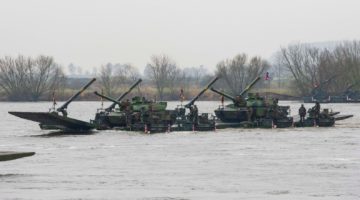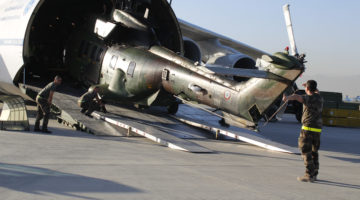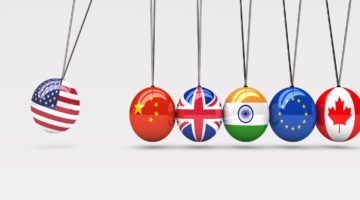Aside from any specific incidents and facts that do crop up over the next four months, as the UK heads towards the 7 May General Election, Defence Analysis will try to stay “off” a constant commentary about how defense doesn’t matter much to the electorate, and that this might mean that whichever government results on 8 May could be sleepwalking into strategic disarmament.
All of this is true, in so far as it goes.
But Defence Analysis feels that where the “Defence Community” has failed is to really state why defense matters, and why it should receive a higher priority than is currently the case – and key players in the “Defense Community” have failed to make this case. So, Defence Analysis decided to try to state what arguments haven’t been put up, and which ones should be – starting with some that have and shouldn’t ….
After that, short of any massive news about defense priorities in the UK, that will be it as far as an editorial on this topic until June .
Up front, Defence Analysis will admit that some of the arguments to be made here are not ones that will quicken the pulse of most voters – but considering the ennui with the election four months before voting, that would be a difficult task at the best of times!
But these are the sort of arguments that should be made to the senior politicians, who might then feel obliged to implement them as policies if they make it into government.
As for the arguments that don’t stack up, try ones such as “we’ve always done this”, “the Americans won’t like it if we can’t”, “remember Trafalgar/Waterloo/the Battle of Britain”.
The problem with all of these arguments is that they are inherently negative ones: there is little positive about them at all.
They also hark back to halcyon days sometime in the past, and so are inevitably rose-tinted. At best, some of these arguments sound like emotional blackmail, rather than reasons why the UK should be active in defense.
There will be those who will say that the UK gets its global reach from such things as finance, and the position of the City of London. The problem with such a view is that as so many of the major players aren’t actually British banks, they are not committed to the UK, and can’t be used to pull in a political direction that the UK government might want.
At the end of the day, a bank such as Goldman Sachs is listed in New York, and ultimately answers to the US government, not the British one.
The current government has often made play of the fact that the UK gets immense kudos from the fact that the British Broadcasting Corporation has “global reach”, and that British fashion is highly regarded around the world.
But did the government of Sierra Leone ask for a large BBC outside broadcast team as Ebola blew up? No, in the case of Sierra Leone (and elsewhere), it is rather the ability of the UK to send a well-found military team to establish hospitals, provide the first large scale treatment crews and the like is what gets the UK credit – and this is very much at the soft end of the military spectrum.
Possibly the key argument is that if the UK is to have a significant global role, then it is going to have this from its – still – pre-eminent role as a military player.
Looking higher up the defence capability spectrum, if you are Latvia, Lithuania, and even Norway, you look to the UK for living up to the military guarantee that is explicit in the NATO charter. All of those countries are looking with a degree of understandable concern to their eastern borders, and want to know that the historically reliable partner will be there for you.
Yes, there could well be quite a few people in Norway who find Mr Bean funny – but that is not what gets the UK clout in countries such as these.
The UK also has a raft of defense agreements with countries across the globe, not least members of the Commonwealth, and these gain credence from being backed up by historical demonstrations of British military capability.
Even looking further afield, the UK retains a reputation in areas such as the Gulf for military capability, although the reputation for reliability took a bit of a blow when the UK pulled out of East of Suez
What doesn’t seem to be well-understood in current and future government circles is that the UK’s past and even present military capabilities can be used to trade in other areas.
So if the UK wants, say, to have an easier time negotiating European Union matters, then it stands a better chance if the UK were still an active and respected player in about the one area where the UK is head and shoulders above everyone else in Europe, namely defense. No guarantees, of course.
But withdrawing from so many NATO standing forces, eschewing multinational forces such as those in the Mediterranean dealing with people trafficking (did anyone else notice that Iceland has a ship patrolling there …??) reduces the UK in many countries’ eyes.
It occurred to Defence Analysis of late that in certain areas, such as those mentioned just above, the UK has actually been involved in an element of “Splendid Isolation”, and that this has been contributing in a diminution of the UK in many countries’ eyes ….
Looking elsewhere, France seems to instinctively “get it”, get the linkage between military/defense capabilities and wider influence. Despite very similar economic and fiscal problems to the UK, Paris has been far better at trying to match the need to retain an important and potent armed forces, within a serious budget envelope.
Yes, France hasn’t got everything right, and there are serious holes and gaps that one can see in France’s defense capability blanket. But one can easily compare and contrast the outcome of the two armed forces over the past two or three years, and say that France has undoubtedly achieved more than the UK has.
Recall, certainly over the past two years, the UK hasn’t been able to claim that it had a massive Afghan presence that dwarfed other countries’ deployments, yet Paris has had on-going missions all over North/Central Africa, Lebanon, and then had Mali to deal with.
And Paris has ensured that it has bases in places such as the UAE from which to retain permanent presence – and thus influence – in that region. Look how slow the UK has been to emulate that ….
So, Defence Analysis would try to summarize things as follows. If a message about why the UK should have relatively substantial defence forces is to be made, then that message has to be a positive one – and for the recent past, the messages have been often negative ones.
Naturally, it is going to be difficult to present a very positive defense “message” after a decade of operations which are widely believed to have been unsuccessful, but it isn’t impossible.
None of this means that the UK has to become a US “Mini Me”, although far too many senior officers seem to want this.
The UK can continue to have considerable forces, with considerable capabilities, with which it can project influence across surprisingly large portion of the world if so desired.
For those who wonder what that influence might bring, Defence Analysis will repeat the old phrase that “trade follows the flag”: there is still a substantial linkage in the Middle East and Asia between countries’ perception of strong nations and their willingness to do trade with them.
One only has to see how successfully China ties defense and trade policy to see how this works, although both the USA and France manage this pretty well, too.
“UK Defence” has got to get a far better, a far more positive, a far more realistic message over to politicians, as well as to the wider electorate about why it is necessary, and why it is necessary at the size and shape that it is.
So far, “Defense” has failed to do so.
This article has been republished with permission of Defence Analysis.
To subscribe to Defence Analysis to the following link:












